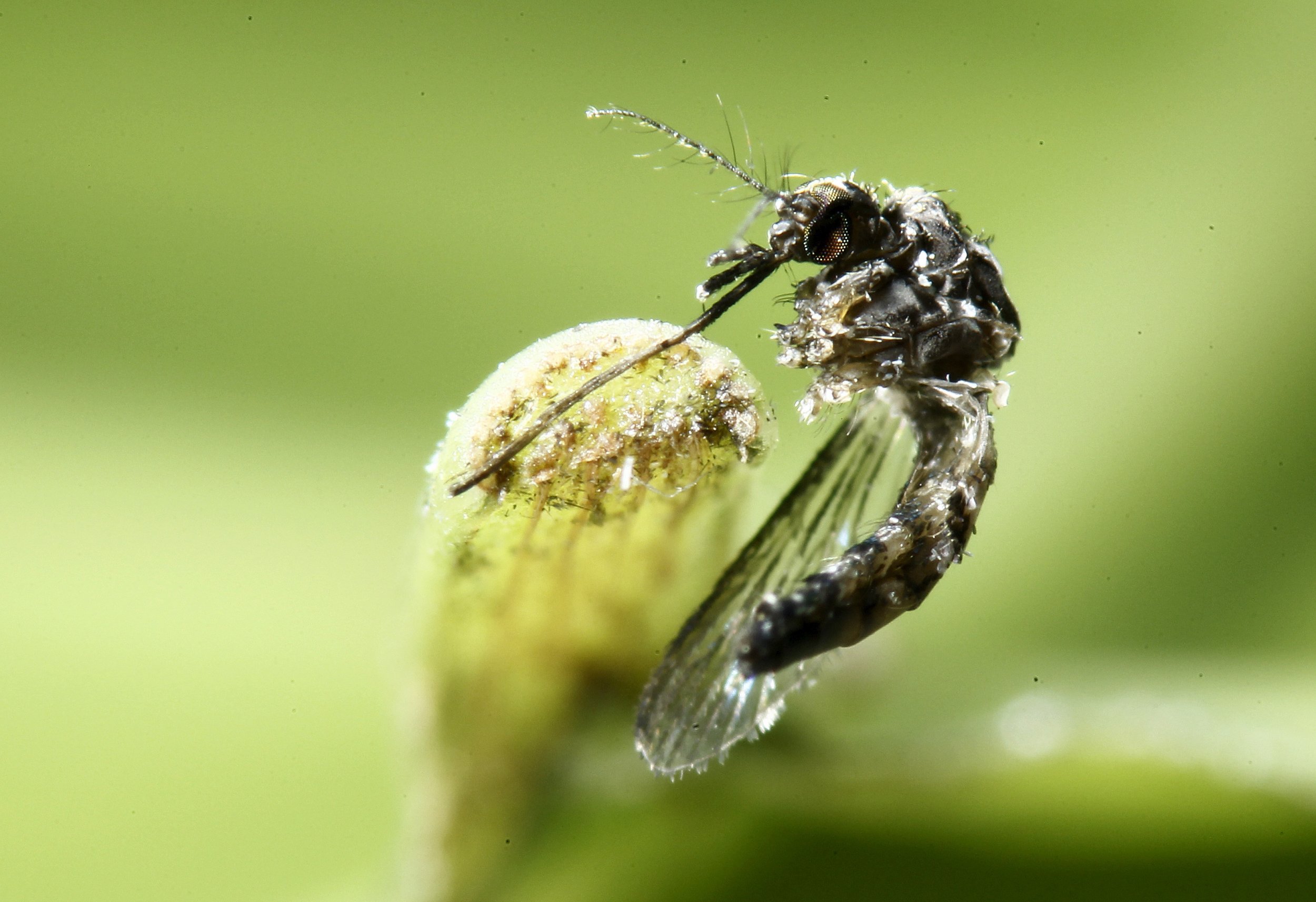
The Aedes aegypti mosquito, the carrier of the Zika virus, may be one of the toughest mosquito species to battle.
Unlike the malaria mosquito, Anopheles, which tends to bite only at night, Aedes aegypti bites during the day, making bed nets largely ineffective. Plus, it prefers to bite mainly people and, accordingly, likes to live near humans, so it flourishes in urban areas, making it a much more virulent public health threat.
They also don't need much space to breed. The Aedes aegypti will breed in standing water of any amount, be it a few centimeters of water in the base of a flower pot or a cup of water forgotten on the porch.
"I've seen Aedes aegypti merrily breeding in discarded soda caps," Joseph M. Conlon, technical adviser to the American Mosquito Control Association, told The New York Times.
Old tires, which pile up in public spaces, are another great spot for mosquito breeding.
Controlling the species would take an all-out coordinated effort and enormous resources to check every property for standing water and spray every neighborhood. That hasn't quite happened; Brazil's health minister has admitted that the country is "badly losing" its battle against the Aedes aegypti mosquito, which has been in Brazil for three decades, spreading dengue. And in perhaps the worst timing imaginable, the country, mired in its worst recession since the 1930s, cut down public health spending just before the outbreak.
In the midst of the "explosively" spreading virus and the difficult prospects for containment, some attention has turned to other means, like genetic engineering.
One British company, Oxitec, has had some success in genetically engineering a version of the Aedes aegypti mosquito that carries a gene that causes its offspring to die before they mature into adults. The Aedes aegypti mosquito only lives up to 10 days, making it possible, in theory, to replace an entire population of them with a new, doomed (genetically modified) generation relatively quickly.
The "friendly" mutant mosquito has been released in the Brazilian city Piracicaba, in one neighborhood where about 5,000 people live, since last April, according to the Times. By December, the presence of wild mosquito larvae (which hadn't been infected with the genetically engineered gene) was down 82 percent, according to the company.
Oxitec releases into the environment only male mosquitoes, which do not bite.
Piracicaba announced plans to scale up the Oxitec experiment this year to cover a population of 60,000 people, but Oxitec does not yet have a license from Brazil's ministry of health to shop around its approach to other Brazilian cities. Meanwhile, public concerns over the long-term impact of releasing genetically engineered insects into the environment have prevented the company from beginning test releases in Florida, the Times reports.
Even if all tests prove wildly successful, Oxitec doesn't have nearly the capacity to stem the spread of Zika within Brazil, let alone the 24 other countries where the virus has taken hold in recent months. The company is building a factory with the capacity to raise enough mosquitoes to cover a population of 300,000 people, but that will take time. And even then, 300,000 people are just a drop in the Latin American demographic bucket.
For now, public health experts are urging traditional mosquito eradication programs, like eliminating standing water and spraying neighborhoods with pesticides and larvicides, as well as a doubling down on efforts to create a Zika vaccine. And with fears that the virus could mutate to jump into other mosquito species, as the West Nile virus did once it reached North America, the need to stem the tide now is enormous.
Uncommon Knowledge
Newsweek is committed to challenging conventional wisdom and finding connections in the search for common ground.
Newsweek is committed to challenging conventional wisdom and finding connections in the search for common ground.
About the writer
Zoë is a senior writer at Newsweek. She covers science, the environment, and human health. She has written for a ... Read more
To read how Newsweek uses AI as a newsroom tool, Click here.








